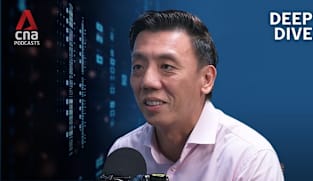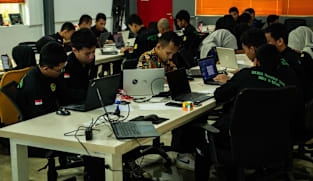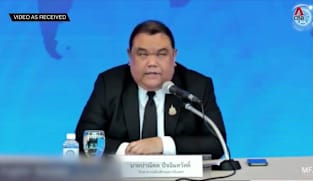Committee of Supply 2024 debate, Day 2: Vivian Balakrishnan on responding as ‘Singaporeans first’, staying relevant and useful on the global stage
Foreign policy begins at home. It must be based on a realistic assessment of Singapore's national vulnerabilities and interests, and it cannot be driven by sentiment or affinity to any external group or allow external events to divide its people. At the same time, Singapore must stay relevant and credible on the global stage by remaining engaged with the international community and maintaining ties with as many countries as possible. Foreign Affairs Minister Vivian Balakrishnan outlined these key principles in Parliament on Thursday (Feb 29), as he warned that the world has become an even more dangerous place, especially for small states. He pointed out that the tragic conflict between Israel and Hamas is the latest addition to the litany of woes, and has ignited a debate over Singapore’s foreign policy and how the country should respond. Dr Balakrishnan stressed that Singapore’s foreign policy depends on domestic cohesion and unity, and while ethnic connections remain useful in cultivating relations with overseas partners, it is essential to “look at issues and respond as Singaporeans first”. Citing the Israel-Hamas war as an example, he warned that external issues can polarise Singaporeans. He expressed concern that Israel’s military response has “gone too far” while the catastrophic situation in Gaza demands an immediate humanitarian ceasefire. He said Singapore maintains good ties with Israel and has good ties with the Palestinian Authority. But it will speak its mind and continue to maintain its principles guided by national interests. “This long-drawn fight has been a tragedy. But this is only the latest chapter of a long saga of tragedy. Our hearts quite rightly ache at the bloodshed. But it is essential for Singaporeans to understand and appreciate that this is not our quarrel. And whilst we may feel a diversity of emotions on this, the worst thing would be to let this quarrel polarise and divide us as Singaporeans,” he said. Dr Balakrishnan noted that Singaporeans have contributed generously and provided humanitarian assistance. Singapore will be donating a third tranche of aid for Gaza through Jordan. “I appreciate that many Singaporeans feel deeply about what is happening,” he said. But he stressed that foreign policy must be based on an understanding of Singapore’s core interests and acting consistently in accordance with the principles that safeguard its independence, sovereignty, territorial integrity and security. He said that looking ahead, there will be many foreign policy issues that are "difficult, sensitive, prickly and controversial”. “Can you imagine if there is a war between the US and China, or India and China, or between our neighbours or in the South China Sea? Then it would not be just economics or just emotion. Everything will come to bear at the same time - both the economic and the emotional impact,” he said. He stressed the need to deal with issues rationally and objectively, as Singapore has done with countries - big or small - to maintain good and significant equities. “We will be useful, but we will not be used by any power. We will look at issues as and when they come up dispassionately and we will always choose on the basis of Singapore’s long-term national interests,” he said. “This makes us relevant, gives us a degree of respect and ability to contribute on the global stage.”
Foreign policy begins at home. It must be based on a realistic assessment of Singapore's national vulnerabilities and interests, and it cannot be driven by sentiment or affinity to any external group or allow external events to divide its people. At the same time, Singapore must stay relevant and credible on the global stage by remaining engaged with the international community and maintaining ties with as many countries as possible. Foreign Affairs Minister Vivian Balakrishnan outlined these key principles in Parliament on Thursday (Feb 29), as he warned that the world has become an even more dangerous place, especially for small states. He pointed out that the tragic conflict between Israel and Hamas is the latest addition to the litany of woes, and has ignited a debate over Singapore’s foreign policy and how the country should respond. Dr Balakrishnan stressed that Singapore’s foreign policy depends on domestic cohesion and unity, and while ethnic connections remain useful in cultivating relations with overseas partners, it is essential to “look at issues and respond as Singaporeans first”. Citing the Israel-Hamas war as an example, he warned that external issues can polarise Singaporeans. He expressed concern that Israel’s military response has “gone too far” while the catastrophic situation in Gaza demands an immediate humanitarian ceasefire. He said Singapore maintains good ties with Israel and has good ties with the Palestinian Authority. But it will speak its mind and continue to maintain its principles guided by national interests. “This long-drawn fight has been a tragedy. But this is only the latest chapter of a long saga of tragedy. Our hearts quite rightly ache at the bloodshed. But it is essential for Singaporeans to understand and appreciate that this is not our quarrel. And whilst we may feel a diversity of emotions on this, the worst thing would be to let this quarrel polarise and divide us as Singaporeans,” he said. Dr Balakrishnan noted that Singaporeans have contributed generously and provided humanitarian assistance. Singapore will be donating a third tranche of aid for Gaza through Jordan. “I appreciate that many Singaporeans feel deeply about what is happening,” he said. But he stressed that foreign policy must be based on an understanding of Singapore’s core interests and acting consistently in accordance with the principles that safeguard its independence, sovereignty, territorial integrity and security. He said that looking ahead, there will be many foreign policy issues that are "difficult, sensitive, prickly and controversial”. “Can you imagine if there is a war between the US and China, or India and China, or between our neighbours or in the South China Sea? Then it would not be just economics or just emotion. Everything will come to bear at the same time - both the economic and the emotional impact,” he said. He stressed the need to deal with issues rationally and objectively, as Singapore has done with countries - big or small - to maintain good and significant equities. “We will be useful, but we will not be used by any power. We will look at issues as and when they come up dispassionately and we will always choose on the basis of Singapore’s long-term national interests,” he said. “This makes us relevant, gives us a degree of respect and ability to contribute on the global stage.”



















